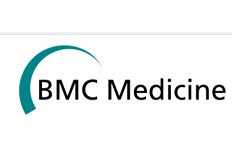BMC Med:干细胞治疗或能逆转I型糖尿病
2012-01-11 mumu 生物谷
I型糖尿病是由于人体自身免疫系统攻击胰腺胰岛β细胞而导致,需要每天注射胰岛素来调节病人血糖水平。一种新方法发表在生物医学中心开放获取期刊BMC Medicine上,用脐血干细胞再培养糖尿病患者自身T细胞,从而启动胰腺功能,减少胰岛素的需要。 干细胞教育治疗,方法是通过closed-loop system,从患者体内分离出T淋巴细胞,然后在体外与健康捐赠者脐带血中分离脐血干细胞(CBSC)共培
I型糖尿病是由于人体自身免疫系统攻击胰腺胰岛β细胞而导致,需要每天注射胰岛素来调节病人血糖水平。一种新方法发表在生物医学中心开放获取期刊BMC Medicine上,用脐血干细胞再培养糖尿病患者自身T细胞,从而启动胰腺功能,减少胰岛素的需要。
干细胞教育治疗,方法是通过closed-loop system,从患者体内分离出T淋巴细胞,然后在体外与健康捐赠者脐带血中分离脐血干细胞(CBSC)共培养2-3小时,然后再将淋巴细胞回输至患者体内,用于I型糖尿病的治疗。在治疗后4,12,24和40周,检查病人进展。
C肽是作为胰岛素生产的副产品一蛋白质片段,可以用来确定β细胞工作水平。直到治疗后12周,所有接受治疗的患者改善了C -肽水平。这种情况继续改善到24周,并维持到研究结束。这意味着,可以降低维持血糖水平的每日胰岛素剂量。根据这些结果,指标长期血糖控制的糖化血红蛋白(HbA1C)指标也因病人接受治疗而下降,但对照组没有。
芝加哥伊利诺伊大学的Yong Zhao博士,主持这项多中心研究,他解释说:"我们在这些患者身中也看到了改善的自身免疫控制。干细胞再培养治疗增加了治疗人群血中调节性T淋巴细胞(Treg)的百分比,如TGF-beta1,表达上升。我们的研究结果表明,这是一种自身免疫控制的改进,由脐血干细胞中的自身免疫监管子AIRE所介导,使胰岛β细胞复原。(生物谷bioon.com)
Reversal of type 1 diabetes via islet beta cell regeneration following immune modulation by cord blood-derived multipotent stem cells
Yong Zhao, Zhaoshun Jiang, Tingbao Zhao, Mingliang Ye, Chengjin Hu, Zhaohui Yin, Heng Li, Ye Zhang, Yalin Diao, Yunxiang Li, Yingjian Chen, Xiaoming Sun, Mary Beth Fisk, Randal Skidgel, Mark Holterman, Bellur Prabhakar, Theodore Mazzone
Abstract Background Inability to control autoimmunity is the primary barrier to developing a cure for type 1 diabetes (T1D). Evidence that human cord blood-derived multipotent stem cells (CB-SCs) can control autoimmune responses by altering regulatory T cells (Tregs) and human islet beta cell-specific T cell clones offers promise for a new approach to overcome the autoimmunity underlying T1D. Methods We developed a procedure for Stem Cell Educator therapy in which a patient's blood is circulated through a closed-loop system that separate lymphocytes from the whole blood and briefly co-cultures them with adherent CB-SCs before returning them to the patient's circulation. In an open-label, phase1/phase 2 study, patients (n = 15) with T1D received one treatment with the Stem Cell Educator. Median age was 29 years (range, 15 to 41), and median diabetic history was 8 years (range, 1 to 21). Results Stem Cell Educator therapy was well tolerated in all participants with minimal pain from two venipunctures and no adverse events. Stem Cell Educator therapy can markedly improve C-peptide levels, reduce the median glycated hemoglobin A1C (HbA1C) values, and decrease the median daily dose of insulin in patients with some residual beta cell function (n = 6) and patients with no residual pancreatic islet beta cell function (n = 6). Treatment also produced an increase in basal and glucose-stimulated C-peptide levels through 40 weeks. However, participants in the Control Group (n = 3) did not exhibit significant change at any follow-up. Individuals who received Stem Cell Educator therapy exhibited increased expression of costimulating molecules (specifically, CD28 and ICOS), increases in the number of CD4+CD25+Foxp3+ Tregs, and restoration of Th1/Th2/Th3 cytokine balance. Conclusions Stem Cell Educator therapy is safe, and in individuals with moderate or severe T1D, a single treatment produces lasting improvement in metabolic control. Initial results indicate Stem Cell Educator therapy reverses autoimmunity and promotes regeneration of islet beta cells. Successful immune modulation by CB-SCs and the resulting clinical improvement in patient status may have important implications for other autoimmune and inflammation-related diseases without the safety and ethical concerns associated with conventional stem cell-based approaches. Trial registration: ClinicalTrials.gov number, NCT01350219.
本网站所有内容来源注明为“梅斯医学”或“MedSci原创”的文字、图片和音视频资料,版权均属于梅斯医学所有。非经授权,任何媒体、网站或个人不得转载,授权转载时须注明来源为“梅斯医学”。其它来源的文章系转载文章,或“梅斯号”自媒体发布的文章,仅系出于传递更多信息之目的,本站仅负责审核内容合规,其内容不代表本站立场,本站不负责内容的准确性和版权。如果存在侵权、或不希望被转载的媒体或个人可与我们联系,我们将立即进行删除处理。
在此留言













#BMC#
62
#Med#
64